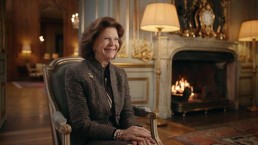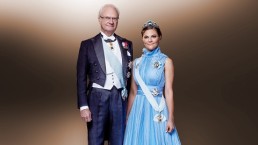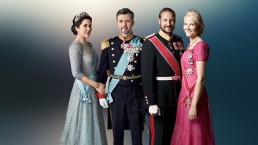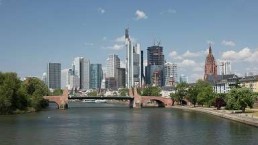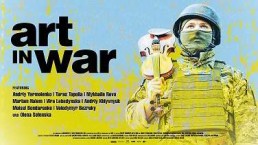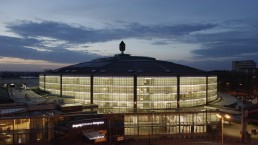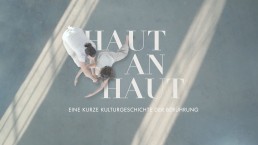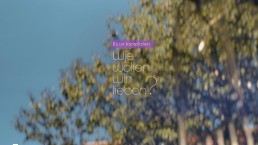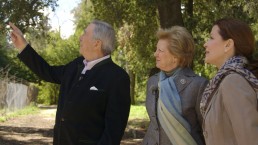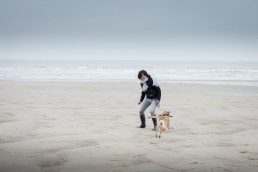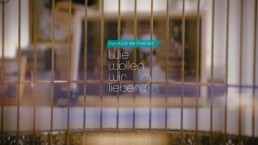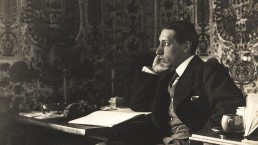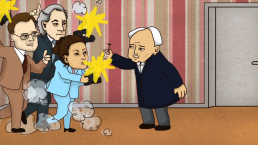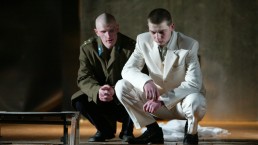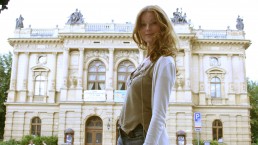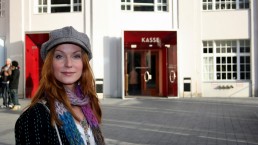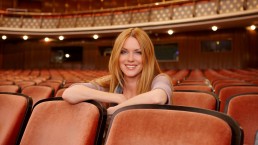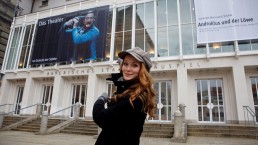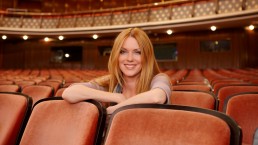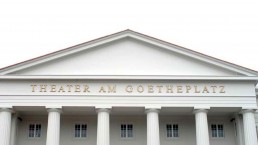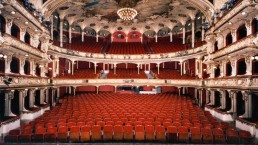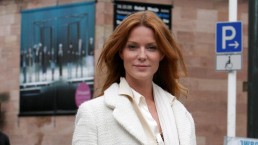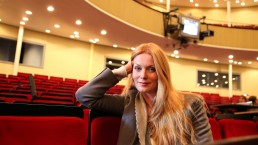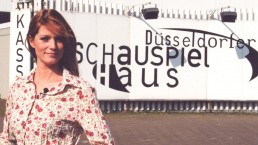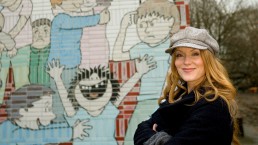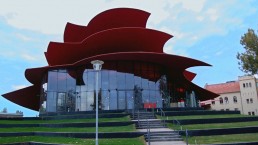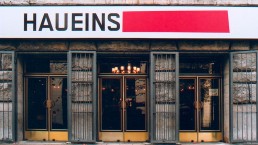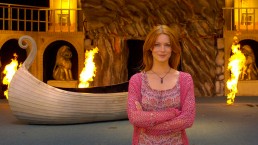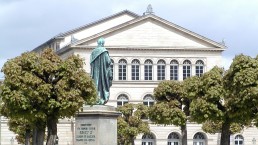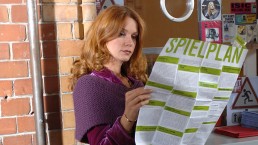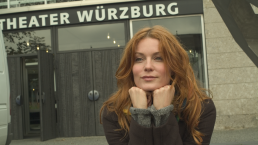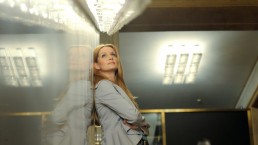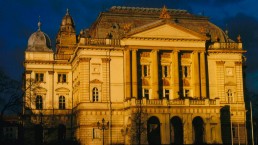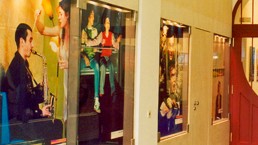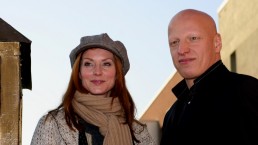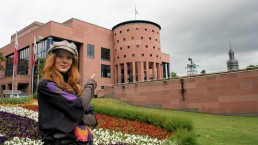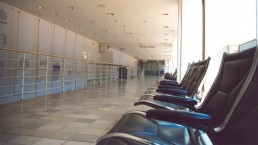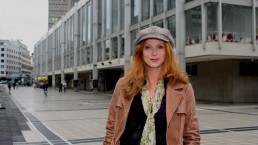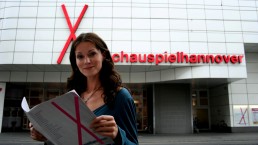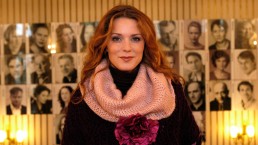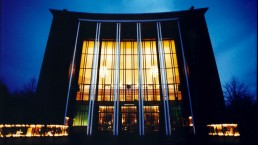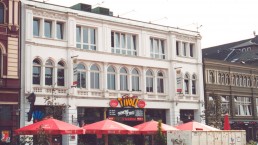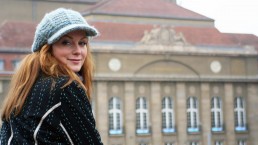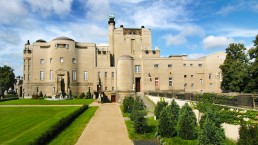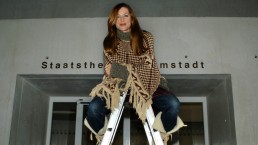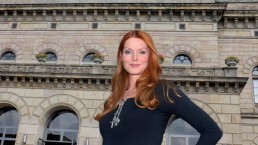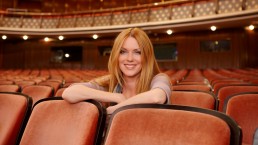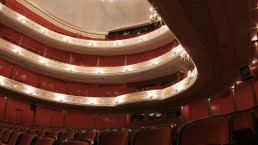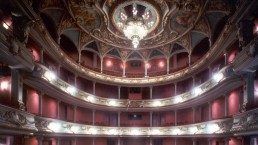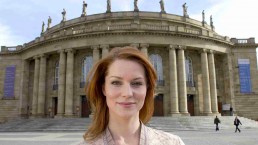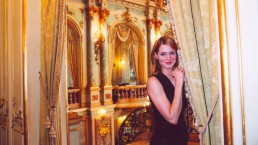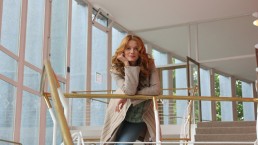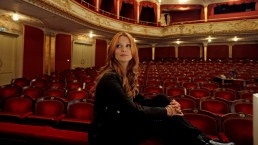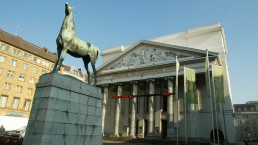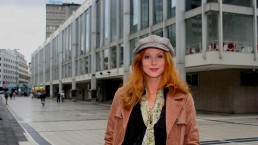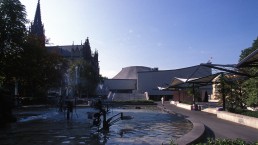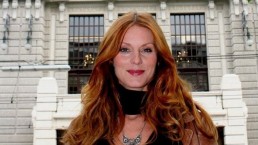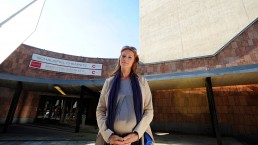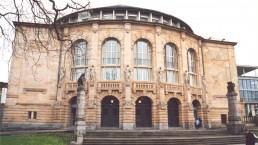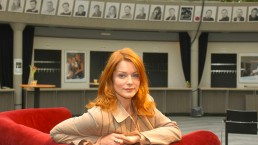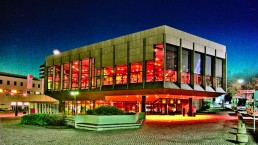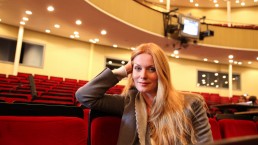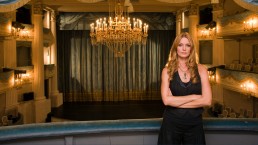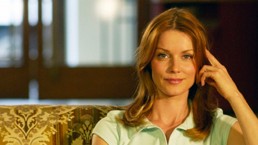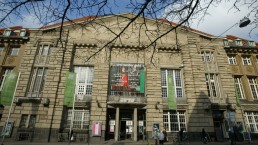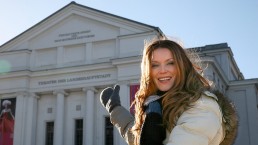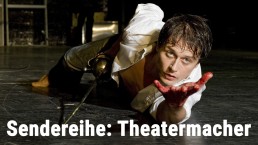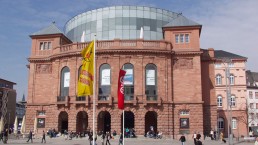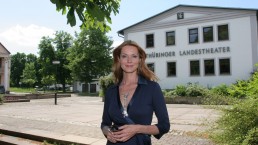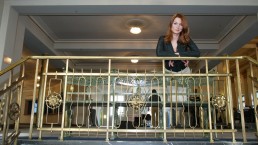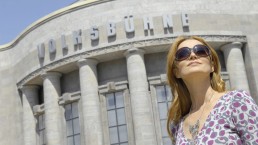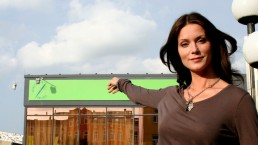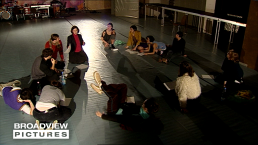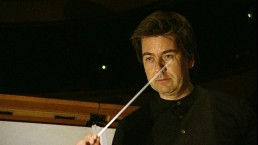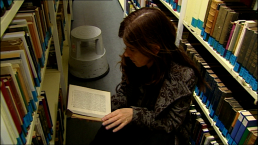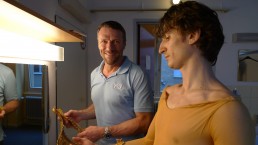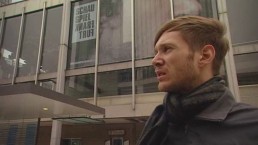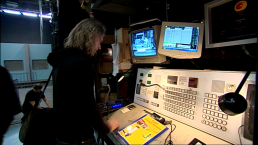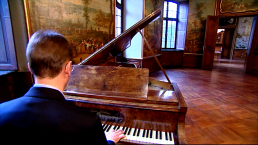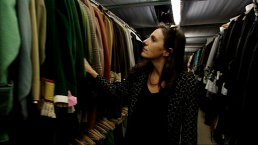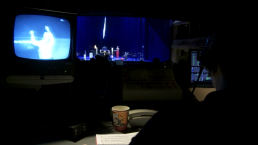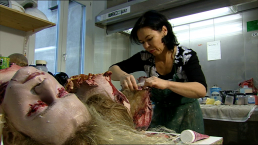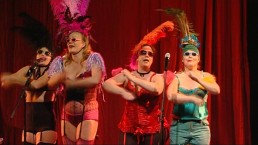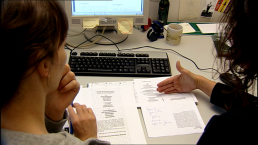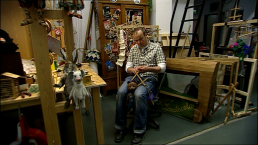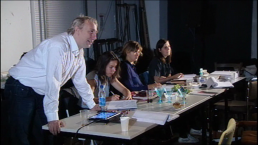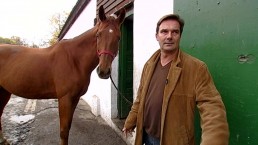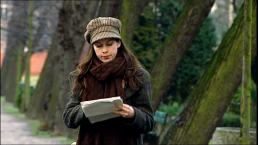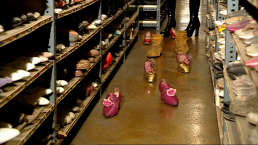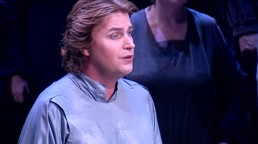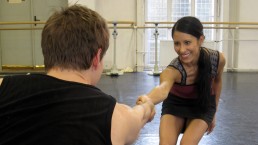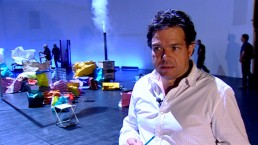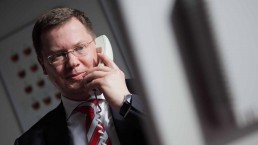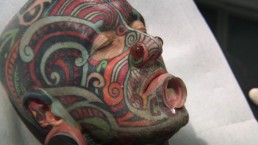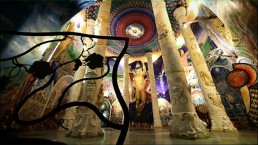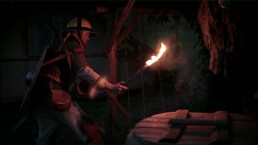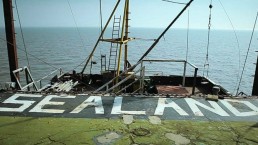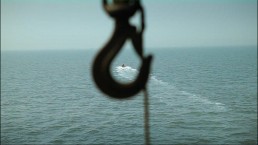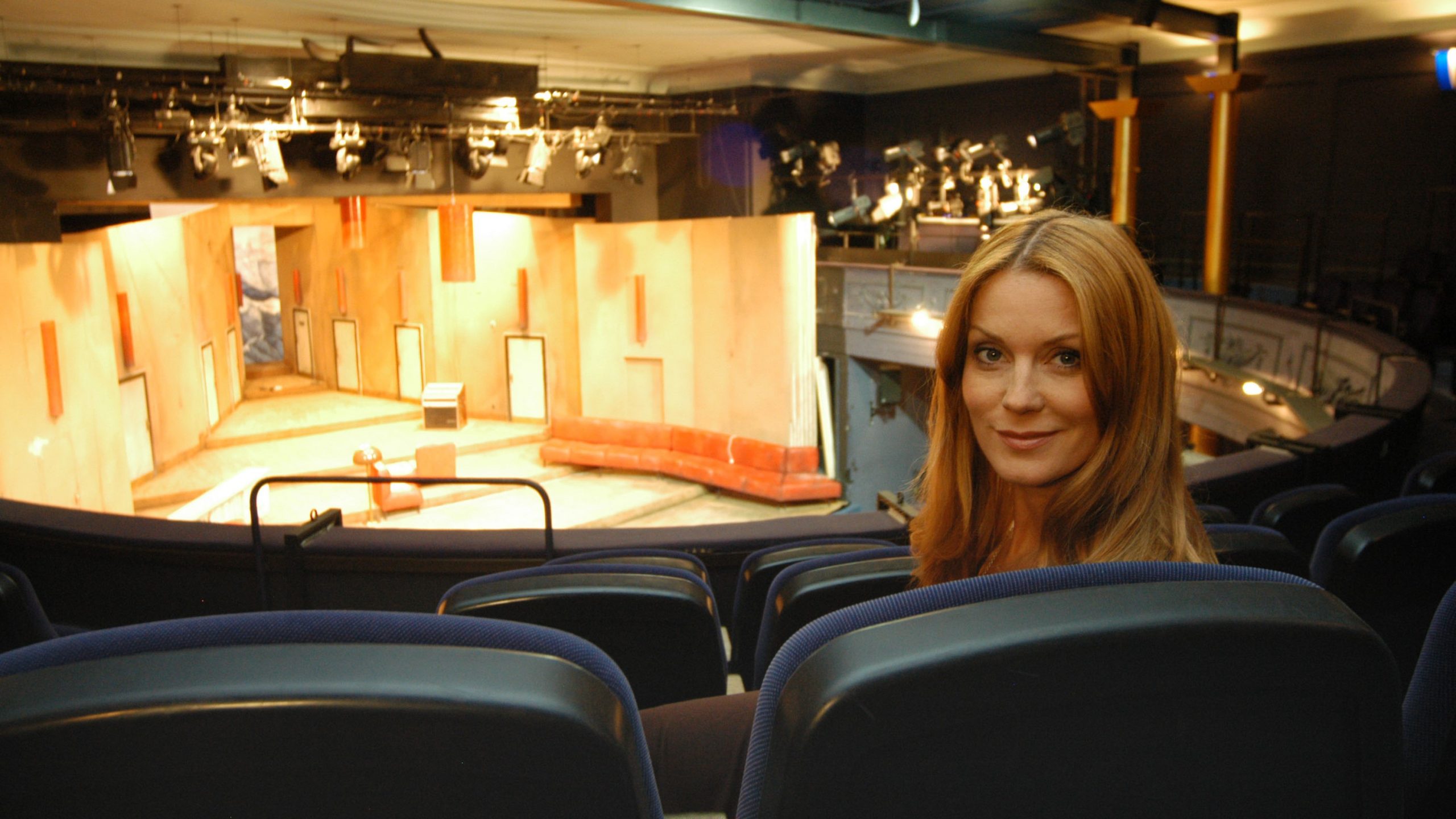
The Oberhausen Theatre looks back on an eventful and not always easy past. Since its foundation in 1920, it has experienced a lot: it has been closed and reopened several times, rebuilt and redesigned - and has always remained true to itself.
The Ruhr region at the beginning of the 20th century: there is a gold rush atmosphere. Collieries and factories spring up, workers flock to the up-and-coming cities - including Oberhausen. The city develops rapidly and as early as 1920 Oberhausen gets its own theatre: the Stadttheater Oberhausen. But soon the artistic upswing is abruptly interrupted. In 1923 the French occupied the Ruhr. The theatre is closed for a short time. But only a short time later the theatre causes a sensation again: with the revolutionary dance theatre of Vera Skoronel. She is one of the first representatives of modern dance in Germany.
And another great of his guild lays the foundation stone for his career here: Will Quadflieg, born in Oberhausen in 1914, only wants one thing: to be on stage. He makes his debut in his home town in 1933. But it is the time of Hitler's seizure of power and the Nazis do not stop at the Oberhausen theatre. In April 1943, large parts of the city - including the theatre - are destroyed in bombing raids.
After the war, reconstruction proceeds rapidly, and by 1949 Oberhausen is the first city in the Ruhr to have a theatre that can play again. Cultural life slowly takes hold again. Five years later the city even has its own film festival: the West German Short Film Festival, later renamed the International Short Film Festival Oberhausen. The festival becomes famous in 1962 with the "Oberhausen Manifesto", which calls for a free auteur cinema under the motto "Papa's cinema is dead". The revolting mood in the city came at just the right time for the Oberhausen Theatre. In reference to the Oberhausen Manifesto, director Günther Büch takes to the stage with the battle cry "Grandpa's theatre is dead".
But once again the upswing is short-lived: the coal and steel crisis that begins in the 70s also affects the theatre. The city has to save money - and does so in the theatre. At the end of the 1972/73 season, the drama section is closed.
It was not until the beginning of the 90s that Oberhausen realised it needed a theatre again. In 1992 Klaus Weise became the new theatre director. To re-establish the theatre, he comes up with something special. He moved the productions to places that had provided work for the people of Oberhausen for decades and now lay derelict, like the famous Gasometer. From 2002 to 2008 Johannes Lepper continued the successful work of his predecessor. And recently Peter Carp became the new artistic director. He faces the great challenge of leading the Oberhausen Theatre into the next generation. The people of Oberhausen wish him "Good luck".
First broadcast on ZDFtheaterkanal: Mon, 01.12.2008 19:00
Theatrescapes: Theater Oberhausen
The Oberhausen Theatre looks back on an eventful and not always easy past. Since its foundation in 1920, it has experienced a lot: it has been closed and reopened several times, rebuilt and redesigned - and has always remained true to itself.
